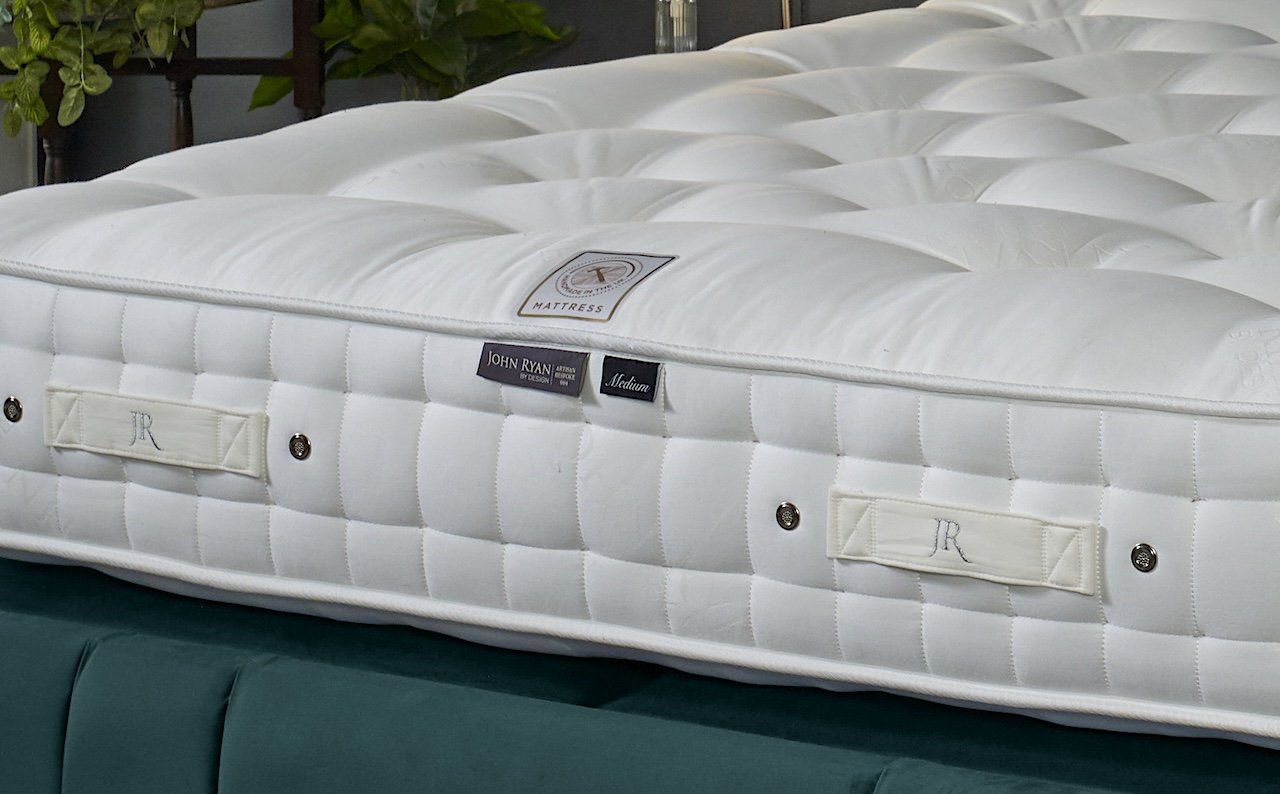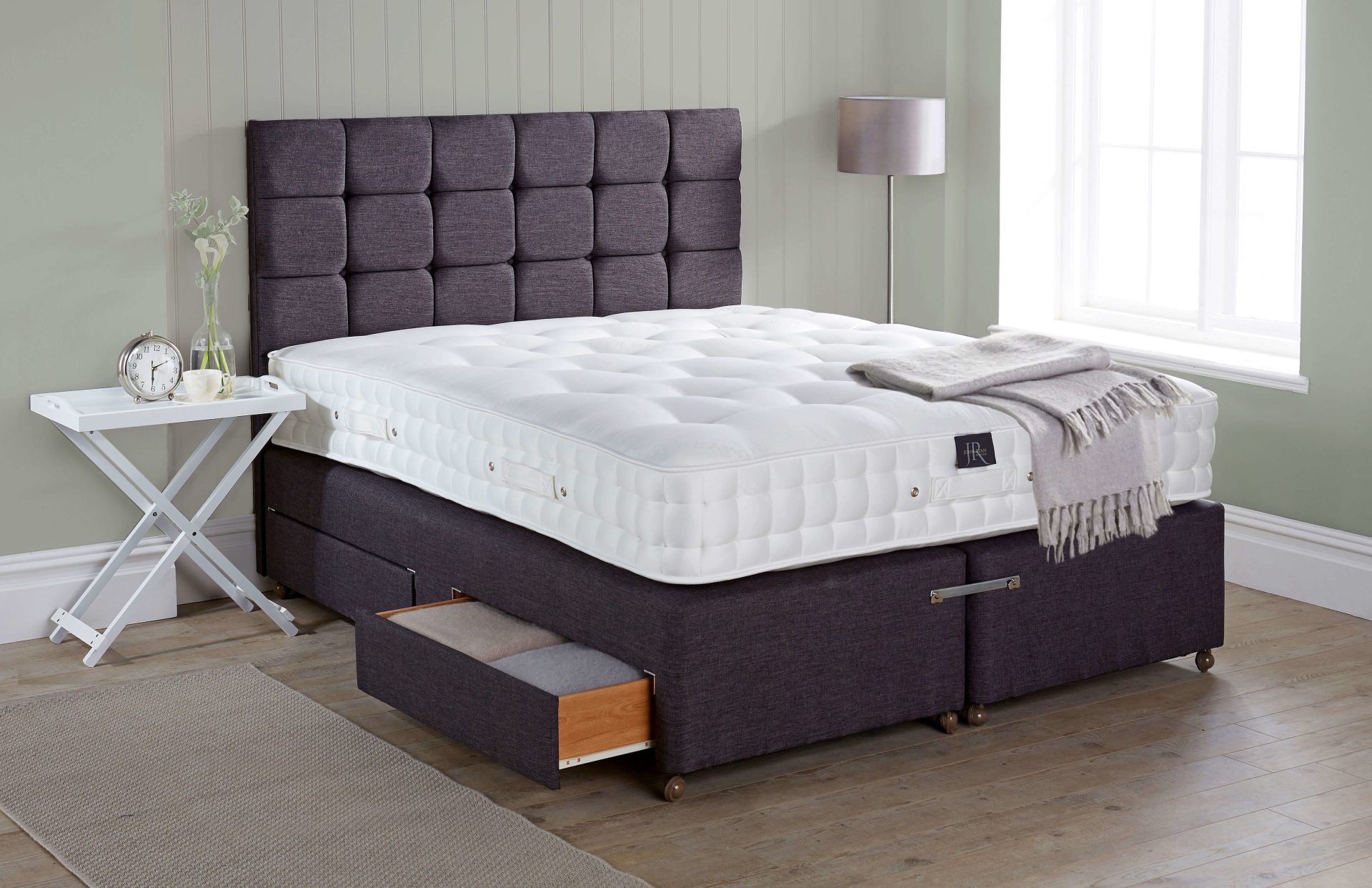Mattress Upholstery, Mattress Choices
November 2024Bed Expert Spills Top Tips on Choosing the Best Vegan Mattress
Are you looking for a truly vegan mattress that offers comfort without compromise? Veganism isn’t just about food choices—it’s a lifestyle that includes finding cruelty-free options for everyday items, even mattresses! With nearly 2.7 million people in the UK now following a vegan lifestyle, finding reliable, high-quality vegan products has never been more important. However, not all “vegan” mattresses are created equal.
Although Veganuary may have been and gone, mattress experts at John Ryan By Design have shared some top tips on choosing the perfect vegan mattress for anyone who’s planning to continue with their veganism journey who doesn’t want to sacrifice great sleep.
1: Not all mattresses labelled ‘Vegan’ are – Verify the Vegan label
Not all mattresses considered vegan by manufacturers are fully vegan. Synthetic fibre mattresses would technically fall under the vegan category as they don’t contain any animal derivatives. However, adhesives used to bind the mattress components together might not be vegan.
If you’re unsure, look for mattresses with the Vegan Society trademark. Brands must demonstrate that their product is truly vegan before they’re awarded this trademark. But also take caution with non-Vegan Society-branded mattresses—they can still be Vegan!

The Vegan Society’s trademark endorsement is intended to help consumers easily identify products that are genuinely free from animal-derived ingredients and animal testing. However, this endorsement process is not without issues. The endorsement process can be costly and time-consuming for smaller, sustainable brands, meaning some genuinely vegan products may not carry the trademark due to logistical hurdles rather than non-vegan content. This can make the endorsement a helpful but sometimes incomplete guide for vegan consumers looking to make fully ethical choices.
In our case, we applied for Vegan Society endorsement. Still, they wouldn’t give us a cost until we told them our turnover, which seemed very much like a commercial tactic to charge us more for their accreditation, so we opted out as they would not be transparent on their fee structure. After all, John Ryan is always fair and transparent, so why can’t they be? We believe the cost of being registered as Vegan should be the same for everyone. After all, it’s the exact same accreditation process.
2: Make sure you aren’t being overcharged
Lower-cost synthetic memory foam or polyester mattresses are sometimes offered as vegan-suitable. Although these materials are lower cost, prices will sometimes be marked up if the mattress is listed as vegan, and you can pay significantly more for a mattress that isn’t worth the cost.
For a polyester mattress, you should expect to pay between £500 and £1,500. Any more than this, and you’re likely being taken advantage of.
Given the cost of accreditation with vegan societies, many mattress retailers pay this and then pass the cost onto the consumers, which can, in some cases, be a few hundred pounds more for the same mattress.
It’s vital you know exactly what is going into the mattress to compare the different fibres and price points. See below for an example of natural fibres to see where that Vegan mattress you’re looking at stacks up!
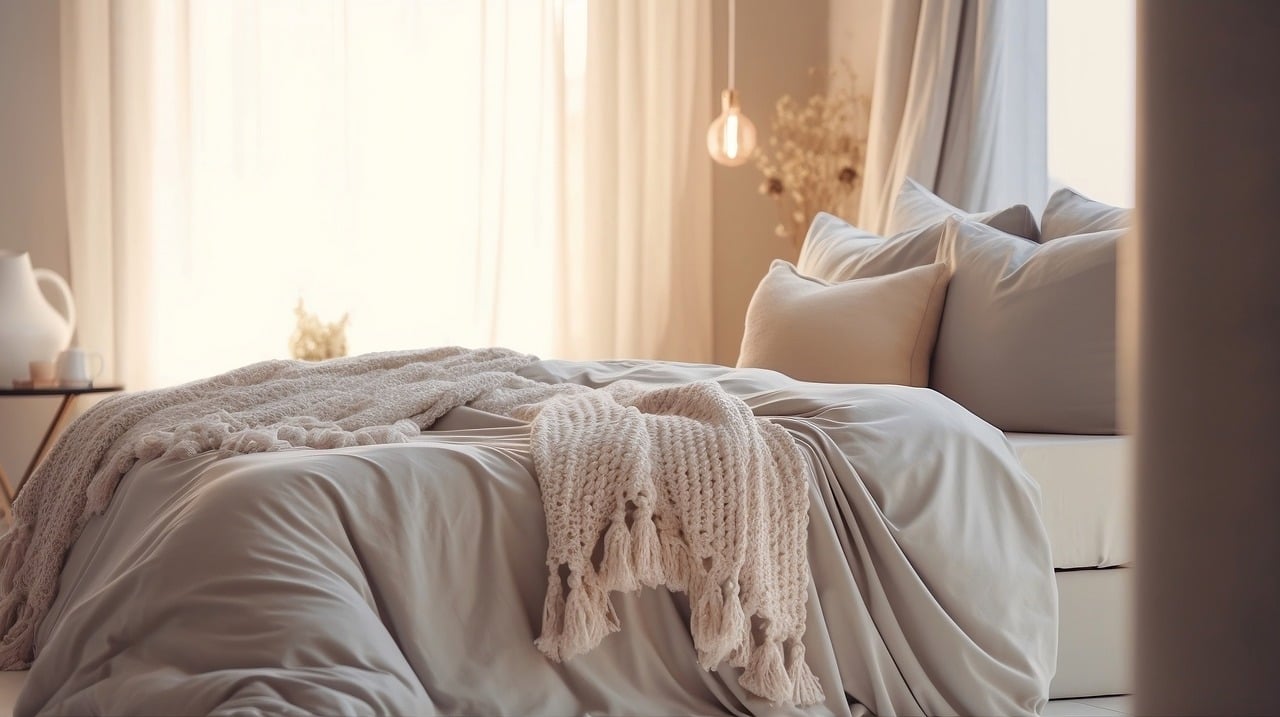
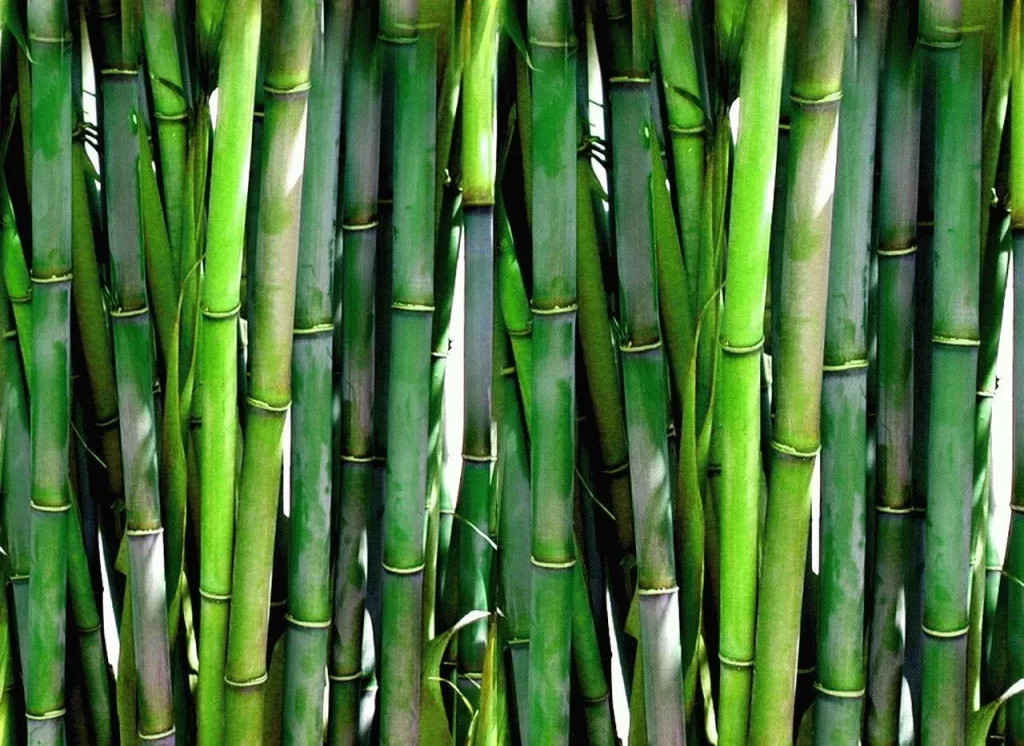

3: Vegan doesn’t necessarily mean environmentally friendly – Beware of off-gassing
Some synthetic mattress materials must be chemically treated to comply with health and safety regulations. Unfortunately, these chemicals can harm the environment due to off-gassing (gas caused by chemicals released when mattress packaging is opened).
Off-gassing is problematic in vegan mattresses because it releases volatile organic compounds (VOCs) and other chemicals used to produce synthetic materials, such as polyurethane foam or adhesives. When these materials are unwrapped, they release these gases into the air, leading to indoor air pollution, unpleasant odours, and potential health issues like respiratory irritation, headaches, and allergic reactions.
Off-gassing is also concerning from an environmental standpoint for eco-conscious consumers. The production and disposal of these synthetic materials can leave a significant ecological footprint, undermining the sustainability goals many vegan consumers prioritize. As a result, while “vegan” mattresses avoid animal products, they may still contribute to environmental harm through off-gassing and the chemicals involved in their production.

Instead, it’s worth investing in a chemical-free mattress from plant-based natural fibres. Plant fibres help the environment because they store carbon, which is only re-released into the atmosphere when the mattress is recycled.
4. Opt for a mattress made mostly of natural fibres.
Plant fibres are preferred for vegan mattresses because they provide a sustainable, eco-friendly, and chemical-free alternative to synthetic materials, aligning with vegan and environmental values. Materials like cotton, flax, hemp, bamboo, and coconut husk are renewable, biodegradable, and have a much lower environmental impact than synthetic foams or chemically treated fibres.
These natural fibres avoid off-gassing, as they don’t require the same harsh chemical treatments as synthetic materials. This makes them safer for indoor air quality and healthier for people with sensitivities or allergies.
Plant fibres also offer excellent breathability and temperature regulation, enhancing sleep comfort by promoting airflow and reducing heat buildup. Additionally, their natural durability means plant-based mattresses can maintain support and comfort longer without developing the lumps or breakdowns often seen in synthetic foam mattresses. In short, plant fibres in vegan mattresses support sustainable, long-lasting comfort without sacrificing the ethical standards vegan consumers prioritize.
Mattresses made mainly from synthetic material are more prone to develop permanent lumps, bumps sagging and dipping as the fibres do not have the same resilience and bounce back of natural fibres,. These bumps can minimise comfort and support and reduce overall sleep quality. Therefore, if budget allows, we’d recommend choosing a mattress with natural fibres. Some of the best materials include:
- Coir, also known as Coconut Husk
- Flax
- Natural latex
- Bamboo fibre
- Hemp
- Tampico
- Cotton
- Cocolok (latex-covered Coir)
Ryan Kerr, bed expert at John Ryan By Design said:
“We want to promote more transparency within the mattress industry, ensuring vegan customers don’t have the ‘hemp’ pulled over their eyes. We think everyone deserves a great night’s sleep while still being able to follow the lifestyle of their choice. these tips can help make sure that happens.”
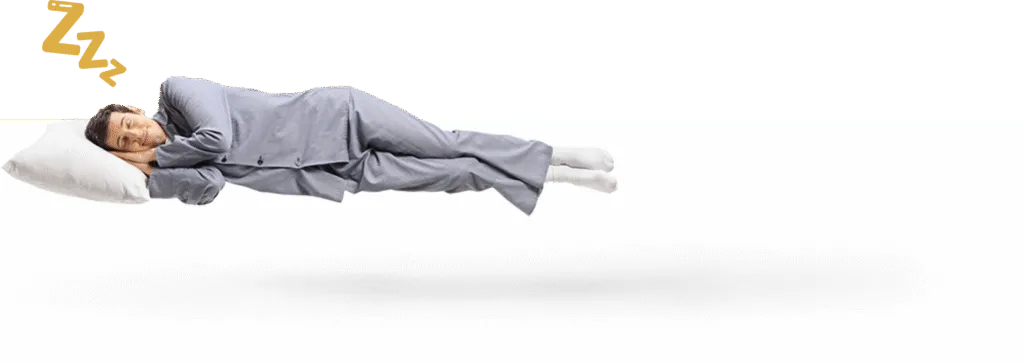
Dreaming of the perfect nights sleep?
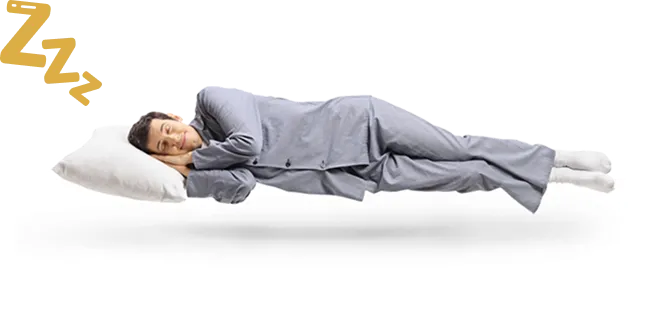
Ask us a question
There are over 6000 questions and answers submitted by you on all questions about mattresses and bed problems. Enter a keyword such as Vi Spring, John Lewis beds, bad back or Memory Foam and see if your question has already been answered.
If you can’t find an answer in knowledge hub, ask a new question. We aim to respond to all questions within one working day.
Newsletter
Enter your email to join our newsletter. We’ll send you occasional news and mattress expertise.

